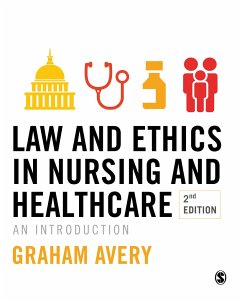Now in its second edition, Law and Ethics in Nursing and Healthcare: An Introduction continues to provide all the information nursing and healthcare students need to know about what is legal and how to decide what is right in order to practise safely and ethically. Graham Avery focuses directly on the vital areas such as negligence, consent, confidentiality, and professional conduct with a practical and accessible approach aimed at healthcare students as well as practitioners.
Key features include:
a new chapter on Deprivation of Liberty Safeguards. Up-to-date information related to the Health and Social Care Act 2012 and the Francis Report. Real life case studies to help students think critically about difficult clinical situations. End-of-chapter scenarios activities with suggested answers to reinforce knowledge.
Qualified as a Registered Nurse and holding an MA in Medical Law and Ethics, Graham Avery is a Lecturer at the University of Essex.
Key features include:
a new chapter on Deprivation of Liberty Safeguards. Up-to-date information related to the Health and Social Care Act 2012 and the Francis Report. Real life case studies to help students think critically about difficult clinical situations. End-of-chapter scenarios activities with suggested answers to reinforce knowledge.
Qualified as a Registered Nurse and holding an MA in Medical Law and Ethics, Graham Avery is a Lecturer at the University of Essex.
This comprehensive text clarifies the legal and ethical system and relates it to the current healthcare environments. Each chapter can be read in isolation and is illuminated with legal case histories. This book is relevant to both students and qualified staff and the scenarios are useful to practice knowledge gained. Sheila Stott, Northumbria University, UK 20160913

